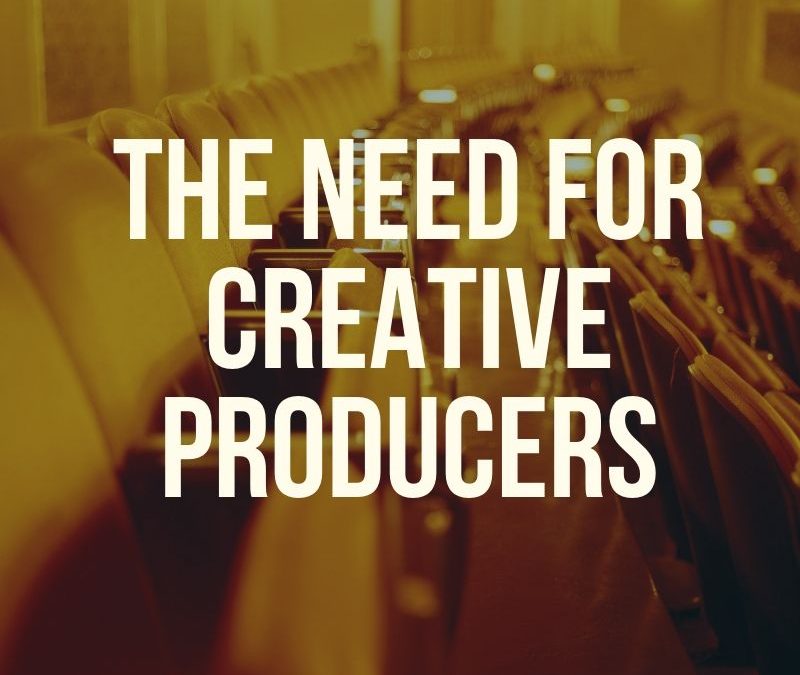![How to Get to Broadway in 3 [Not So Easy] Steps](https://createtheater.com/wp-content/uploads/2018/01/How-to-Get-to-Broadway-800x675.jpg)
How to Get to Broadway in 3 [Not So Easy] Steps
Still Flying After the TONYs?
How many of you are still flying high after the 2019 TONY Awards ceremony? The encouragement to all performers to continue the work, to celebrate our diversity, and the overall pure celebration of this art form in general and our NY Theater community specifically was so clearly demonstrated and felt. I want to hold on to this positivity and feeling of limitless potential – especially when life clearly wants to show me the opposite.
Who here wants to feel that you too can get to Broadway? How do we – we, the little people sludging through the theater pipeline – escape the muck and murkiness and come out shining on the Great White Way?
How do WE get go Broadway?
I’ve given this a LOT of thought – after all, it’s what I do – and from where I stand, here are my observations from watching how many of my friends who were present (and on screen) at the TONYs got there.
Here are my three not-so-easy steps on how to make it to Broadway:
- Get an idea that’s highly relevant
- Be prepared to do the work – for a long time
- Don’t be afraid to self-produce your own work.
Get an Idea That’s Highly Relevant
What speaks to you? What story, mission or message is burning a hole in your heart to get out to the world?
THAT’s the story you need to tell.
Chances are, if it’s burning a hole in your heart it’s burning a hole in many other hearts as well. You’re just the message-bearer meant to bring it to everybody else. And remember, karma’s a bitch.
Now what do I mean by “highly relevant”? By that I mean a message that:
- Speaks to a larger issue in our culture that is of great concern. By identifying and promoting a larger conversation you are participating in the current cultural conversation and sharing the right ideas at the right time.
- Topical or Universal. If your story, mission or message cuts across the cultural and chronological divide, you have a timeless human story with a thread that resonates for human beings everywhere. Human beings love to watch inspiring stories about other human beings struggling to succeed with something that’s important to them.
- Stories that engage both the audience’s head AND heart. As I tell all the writers I work with, write from your heart first and edit with your head afterward.
If the message is important to you and you can answer the question, “Why this story NOW?” then it’s a highly relevant story.
Be Prepared to Write and Re-Write
Getting to Broadway is a marathon, not a sprint. If you only hold the vision of seeing your work being celebrated on a Broadway stage somewhere in the future, you’re in for many long, dark days stuck in the pipeline. Find joy in the process and understand that not every script needs to find its way to Broadway.
There are many smaller achievements to celebrate as you travel along en route. Learning to recognize and celebrate the little things that put a smile on your face gives you your daily inspiration to keep going.
- Celebrate every “aha!” moment that comes from the daily work in the trenches (yes, I said daily). There’s joy in that delicious idea that manifests itself
- Celebrate the YOU that’s becoming. You are DOING what you said you’d do for yourself, and in the promise you are growing into what you said you wanted – someone who writes successful plays or musicals. How many people that you know actually do what they dream? Remind yourself, “I AM a writer/composer/lyricist.”
- Find the joy that comes with collaborating with other creative people. Part of becoming a successful writer is knowing and working with other creative and brilliant artists. Take joy in immersing yourself in all of the creativity that’s around you, until one day you realize this is where you belong. This is who you are.
A note of caution here: don’t feel compelled to listen to everyone. Not every opinion needs to be addressed by anything more than a brief acknowledgement. “Thank you, that’s interesting. I’ll think about it,” should be your most frequent response. However, if the same comment, in various forms, appears more than three times, it is probably something you should look at.
Don’t Be Afraid to Self-Produce
THE DREAM: I need to find a [producer, theater] to produce my script. I’m a writer, not a producer.
THE REALITY: You need to be your own producer – at least at first.
How many of you were always the last to be chosen for the softball teams? Doesn’t sitting on the bench suck? It’s the same here. Be proactive in your life. Start the momentum by producing your own work.
Overwhelming, you say? Take it easy. Start baby-stepping your way to success.
- Save your money. No one is going to love your baby (your work) more than you do.
- If you don’t have money, be creative about finding people who do.
- Learn how to start a Kickstarter fund
- Ask! Start with those who know and love you, and their friends and family.
- Make relationships with theaters near you. Volunteer, donate, go to their galas. Show up on their social media. Be their local ambassador and build a relationship with them.
- Find groups, companies, non-profits or institutions who resonate with your show’s message and target audience. Find ways to introduce them to your show.
- Network! Join communities online (like createtheater.com) as well as your local networking groups. Believe that synchronicities are always around the corner, and they will be.
Whoever promised that achieving a life-time dream was easy? Was anything worthwhile ever easy? Is life really a Staples commercial?
If You Are a Writer, You Write.
Ask any of the recipients that earned their stripes – er, TONYs. Nothing is easy. Ever! Nothing is promised.
But as trite as it sounds, “the joy is in the journey,” and if this is WHO you are and this is WHAT you do – it’s worth all of it.
Do what you have to DO to BE who you need to be.
DO BE DO BE DO.
Ok, let’s get to work! 🙂
Best of all, they’re all free.


